Site Search
- resource provided by the Forum Network Knowledgebase.
Search Tip: Search with " " to find exact matches.
A corporate member queried the corporate listserve which technology tools they use for their corporate giving system/platform. CNJG compiled the responses and combined it with previous responses from other technology systems queries to create this...
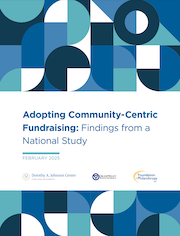
This national study examines the adoption of Community-Centric Fundraising (CCF) practices across U.S. nonprofit organizations. Proposed in 2019, CCF is a set of principles developed by people of color to align fundraising with movements for race,...
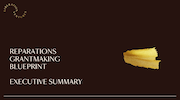
Liberation Ventures and the Blueprint Steering Committee released the Reparations Grantmaking Blueprint — a 10-year funding vision and strategy to make reparations common sense and common place in America. Co-created by movement leaders from across...
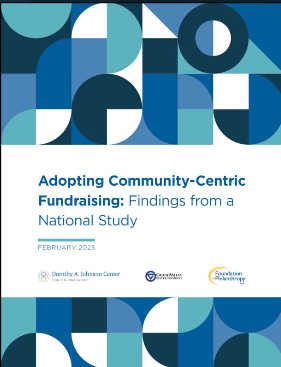
This national study examines the adoption of Community-Centric Fundraising (CCF) practices across U.S. nonprofit organizations. Proposed in 2019, CCF is a set of principles developed by people of color to align fundraising with movements for race,...
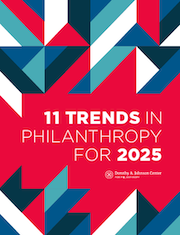
Dorothy A. Johnson Center for Philanthropy ninth annual report on trends in the sector aims to help fundraisers, grantmakers, donors, consultants, and more anticipate and prepare for what's next in our field. This report looks beyond the...
The Grantmaker Salary and Benefits (GSB) Report is the philanthropic sector's leading source of comprehensive data on U.S. foundation staff, helping organizations of all sizes craft budgets, recruit and retain talent, and set personnel policies. The...
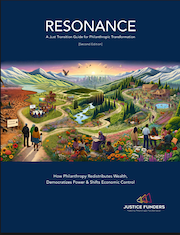
A framework developed to help the philanthropic sector move away from traditional, extractive practices and toward a "just transition". It helps guide grantmakers and donors understand how to align their resources with social justice movements and the...
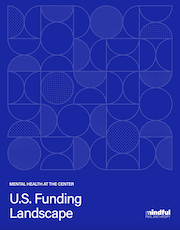
This comprehensive report provides an in-depth view of philanthropic giving toward mental health, addiction, and well-being in the United States.
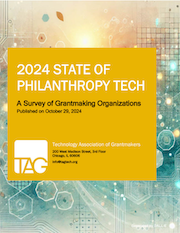
The Technology Association of Grantmakers (TAG) 2024 State of Philanthropy Tech report provides essential data that will shape the future of technology in philanthropy. It covers topics such as IT staffing ratios, the increasing role of artificial...
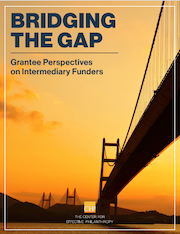
The Report represents the largest study of grantee experiences with intermediary funders to date and raises important considerations for intermediaries and originating funders alike. It shares insights into how grantees experience intermediary funders...
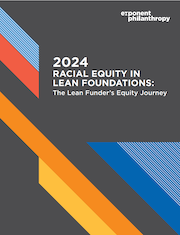
The 4th edition of Racial Equity in Lean Foundations, delves into how foundations with few or no staff are incorporating racial equity into their work to drive better decisions, achieve more equitable outcomes, and amplify their philanthropic impact...
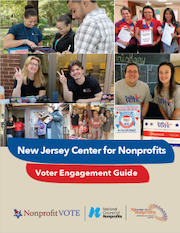
New Jersey Center for Nonprofits in partnership with Nonprofit VOTE and the National Council of Nonprofits has developed a nonpartisan Voter Engagement Guide that outlines allowed nonpartisan activities and demonstrates how charitable nonprofits can...
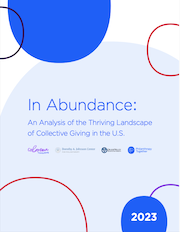
In Abundance: An Analysis of the Thriving Landscape of Collective Giving in the U.S. explores the transformative impact of collective giving on philanthropy. Practiced in cultures all around the world, collective giving brings people together to pool...
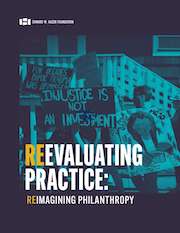
This document promotes more effective funder partnerships for social justice. The report highlights lessons from grantee collaboration and aims to inspire philanthropy rooted in equity and justice.
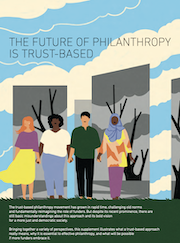
The trust-based philanthropy movement has been gaining momentum recently, but there are still some misconceptions about this approach and its ambitious goal of creating a fairer and more democratic society. This supplement, published in the Stanford...
Adopted by CNJG”s Board of Trustees in October 2023, these eight Principles offer philanthropy a source of direction for their own equity journey. Each principle begins with a common understanding followed by developmental steps, and the aspiration...
Alexis Bivens, Vice President of Strategic Initiatives and Managing Director of the Supporting Organizing Work Funders Collaborative, Connecticut Council on Philanthropy, presents the process and progress of how an affinity group transformed into a...
The Sustained Collaboration Network has published a comprehensive guide for funders and nonprofit to guide organizations through the various step of collaborations. Ranging from Executive...
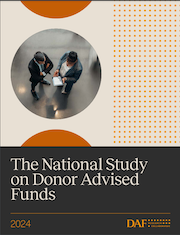
This project represents the most extensive independent study on DAFs to date.
Thanks to the collective efforts of 111 DAF programs that voluntarily provided anonymized data to the research team, the dataset covers nine years of activity...
At a recent Ocean & Monmouth Funders Roundtable, the group discussed all of the different databases and lists of nonprofits available to philanthropy to be able to research new and different nonprofits.
